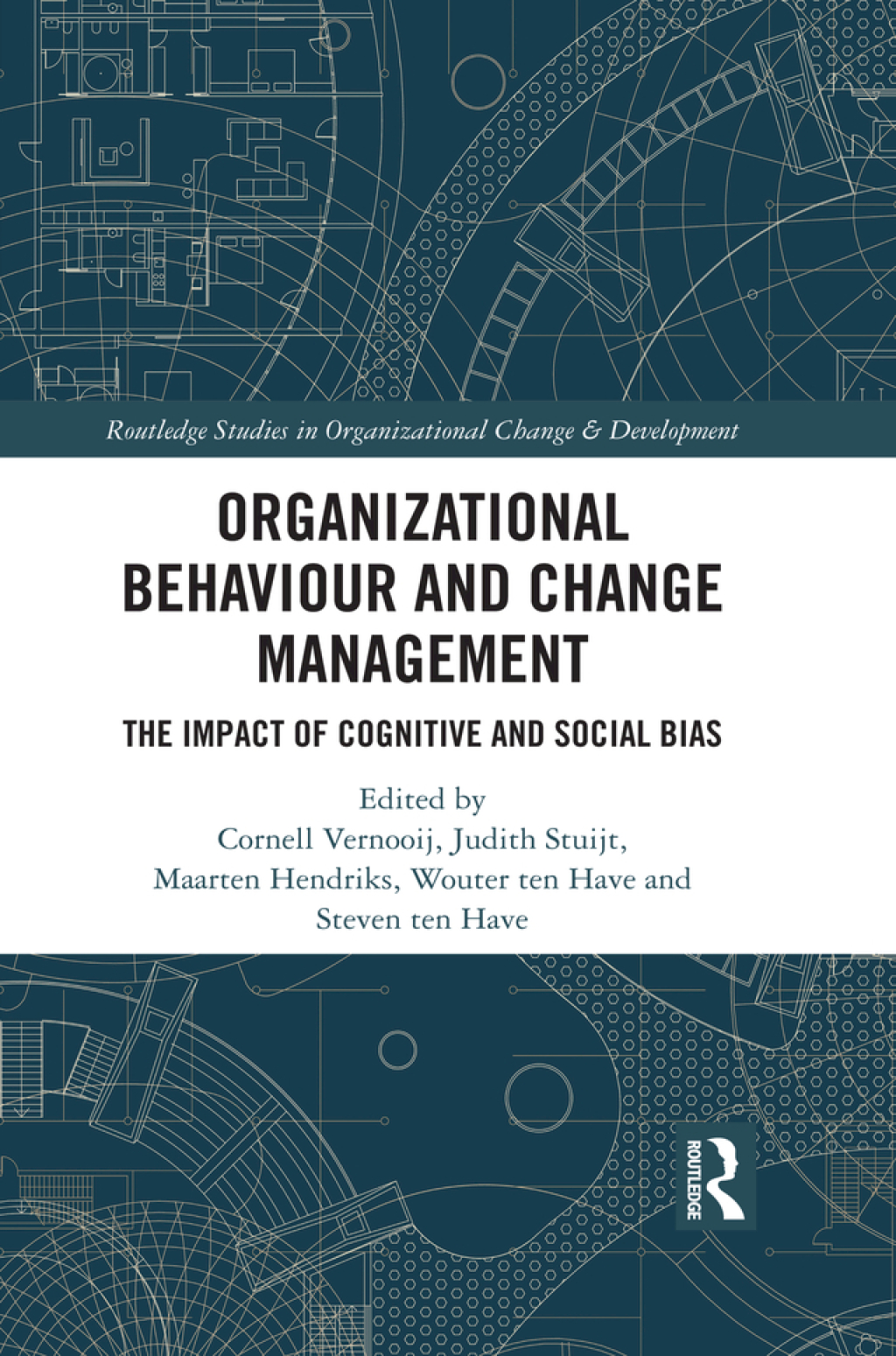Humans are social animals, and change is a social process. To understand this social process and explain the thoughts, feelings, and behaviours of individuals, knowledge of how the presence of others influences people is crucial. In this regard, bias is a concept with a lot of potential. Because cognitive and social biases influence human thinking, feelings, and behaviour, these provide insights and knowledge that are helpful, if not essential, for the field of organizational behaviour and change management. The preceding statements may seem obvious and self-evident, but practice as well as science show that they are neither. Organizational Behaviour and Change Management: The Impact of Cognitive and Social Bias aims at unleashing the potential of cognitive and social biases to develop a more effective change management theory and practice. To do so, we analysed and assessed thousands of scientific articles. The most prominent biases are structured by using a practical and comprehensible framework based on five core social motives (belonging, understanding, controlling, trusting, and self-enhancing). With its evidence-based, systematic, and integrative approach, this book provides scientists and practitioners in the field of organizational behaviour and change management with the best-available evidence, linking biases to organizational behaviour and change and further enriching the field of change management.
“Diagnostic Imaging: Oral and Maxillofacial 3rd Edition” has been added to your cart. View cart
Organizational Behaviour and Change Management The Impact of Cognitive and Social Bias 1st Edition
Author(s): Cornell Vernooij; Judith Stuijt; Maarten Hendriks; Wouter ten Have; Steven ten Have
Publisher: Routledge
ISBN: 9781032264233
Edition: 1st Edition
$39,99
Delivery: This can be downloaded Immediately after purchasing.
Version: Only PDF Version.
Compatible Devices: Can be read on any device (Kindle, NOOK, Android/IOS devices, Windows, MAC)
Quality: High Quality. No missing contents. Printable
Recommended Software: Check here










